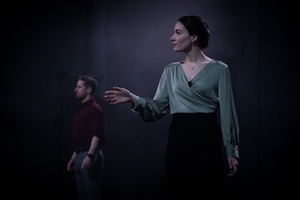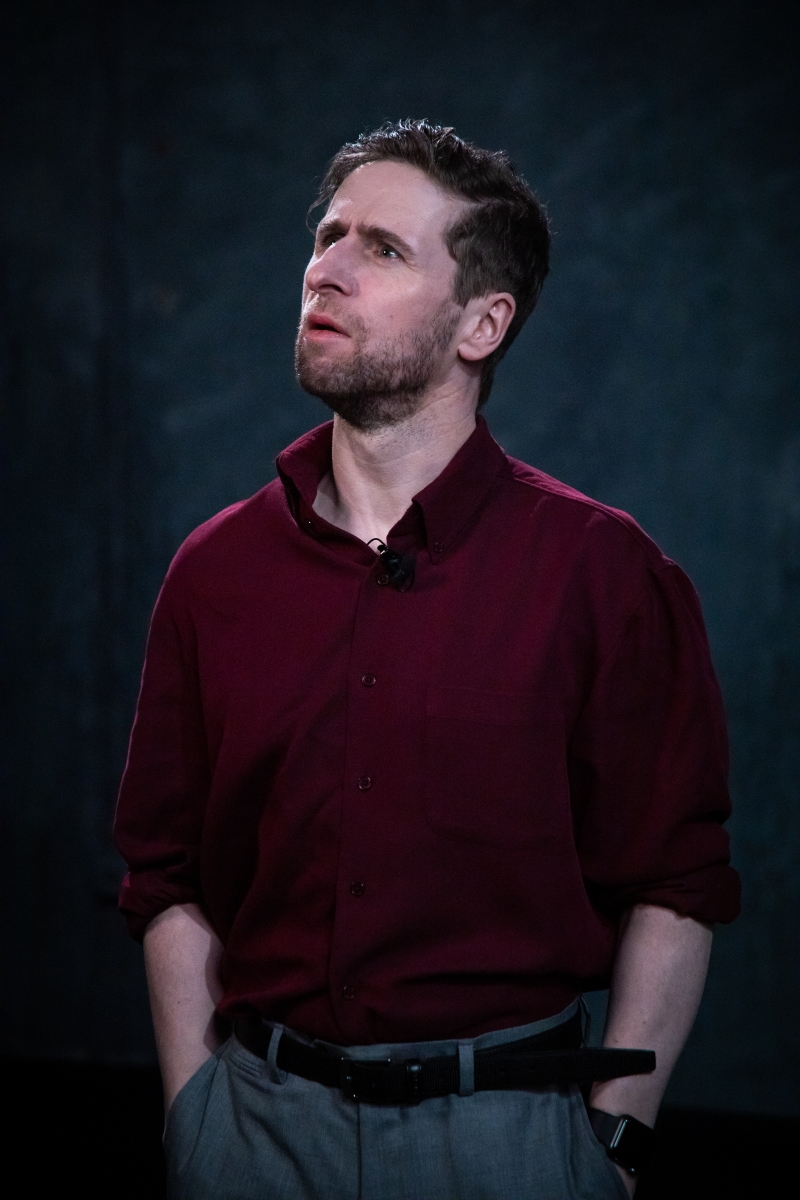Review: ONCE UPON A BRIDGE
Druid minds the gap in a tense exploration of a near-tragic incident

On May 5 2017, a jogger on London's Putney Bridge pushed a woman out of his way and into the path of an oncoming London Bus. Only for the lightning-fast reflexes of the bus driver, the woman would have been crushed to death.
Sonya Kelly's touching and kinetic Once Upon a Bridge imagines the lives of the three protagonists - the jogger, the woman, and the bus driver - in the leadup and aftermath of the near-tragedy.
As each of the characters approach the bridge, their minds are focused on the importance of the day for them.
A recent immigrant to the UK, the bus driver (Adeotomiwa Edun) wants to show his pride in his job by arriving at each stop at exactly the scheduled time and returning to his depot - after a 5am start - the second he is due in.
The jogger (Aaron Monaghan) is a city trader. He's out on a 5k run before his interview that morning for a chief analyst position at his firm. A self-professed "gentleman", his new wife is expecting their first child. But he's discommoded after he receives a phone call from the firm asking him to come in for the interview earlier than originally scheduled.
Into his path comes a woman also on her way to an interview. After moving from Ireland to study law at Cambridge, the newly-qualified barrister is psyching herself for an interview with the law firm of her dreams
While Kelly's choice of the monologue form was influenced by the social distancing restrictions associated with Covid-19, it's especially fitting for the story she is telling: had the incident on the bridge never happened, it's unlikely that the lives of these three very different characters would ever have intersected.
 A drumbeat of the script is the rich backstories that Kelly weaves into her tapestry.
A drumbeat of the script is the rich backstories that Kelly weaves into her tapestry.
Despite driving "a bright-red monster", the bus driver feels invisible to the denizens of London and believes that he "must be the eyes of people who don't see me".
The jogger is furious that as a city trader his company made him attend a workshop to address "non-verbal micro aggression" in the workplace.
Meanwhile, the woman is anxious that her newly-acquired English accent represents a betrayal of her Irishness - particularly of her beloved grandmother whose face, in her 20s, was scarred after she was pushed to the ground in Piccadilly Station on her way to a job interview.
In this live-streamed production premiere, director Sara Joyce deftly builds momentum through the use of sound effects and sharp camera cuts between the characters, and the tension is heightened by intercutting the performance with the chilling CCTV footage of the real incident.
While the strong cast respond fluidly to Joyce's slick, pacey orchestration, Siobhán Cullen crafts the production's most commanding performance by expertly letting us peer inside the character's invulnerable carapace.
Indeed, her performance echoes the tenor of a script that undercuts familiar tropes and infuses an exploration of an unsettling incident with dusty-dry humour.
Rather than climaxing with what happened on Putney Bridge, the script's tracking of its repercussions most clearly articulates its concerns with fate, chance, and justice.
With dance motifs as its hallmark, the play shimmies towards an ending that's as hopeful as it is unexpected and Kelly shows that her work can confidently shift from memoir (How to Keep an Alien) to comedy of manners (Furniture) to, here, punch-in-the-stomach drama. A warm-hearted triumph.
Run concluded. The play was written for a live audience and Druid hope to bring it to one when it's safe to do so. Druid.ie.
Photo credit: Emilija Jefremova.
Reader Reviews

Videos

